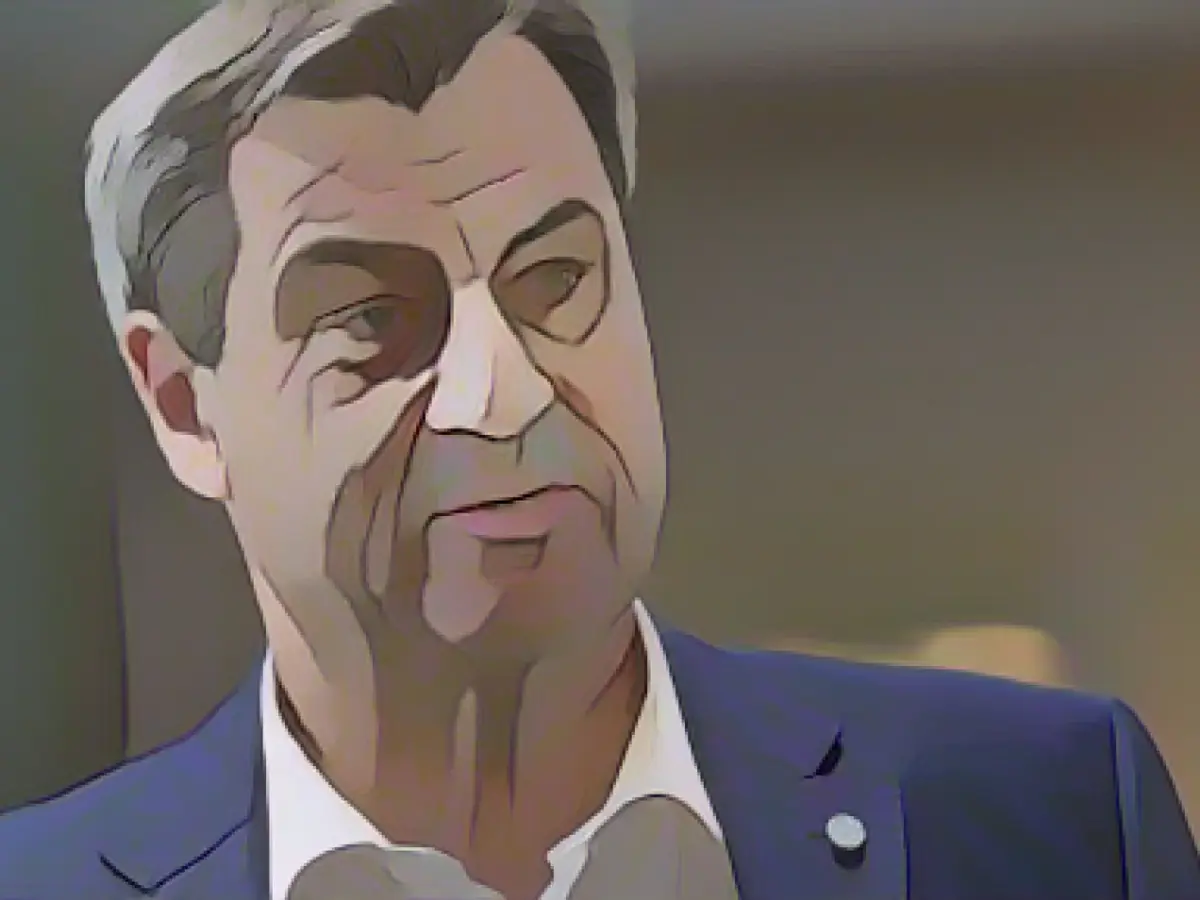Household - Söder: "No change to the debt brake"
Bavaria's Minister President Markus Söder (CSU) does not want any changes to the debt brake. "The debt brake will not be softened. I am also very disappointed that Christian Lindner said in a recent interview that, well, perhaps it could be tinkered with a little," said Söder in the ZDF program "Berlin direkt" with regard to Finance Minister Lindner (FDP). Under no circumstances would the CDU/CSU agree to a change to the debt brake in the Bundestag, said Söder. "This means that the necessary two-thirds majority for a constitutional amendment is not given."
AlthoughLindner rejects a fundamental reform of the debt brake as demanded by the coalition partners SPD and Greens, he recently announced plans for a partial reform in the coming year. The FDP politician told Redaktionsnetzwerk Deutschland on Saturday that there are plans to revise the calculation of the so-called economic component, which allows more leeway in the event of a downturn. "The intention is to adapt the calculation to the current state of economic research, which will change the fluctuation range," he said.
The finance minister wrote on the X platform (formerly Twitter) that he was somewhat disappointed with Söder. "As a former finance minister, he should know that updating the calculation of the economic component of the debt brake does not lead to higher debt." A two-thirds majority is therefore not needed.
Due to the gigantic German national debt, the debt brake was enshrined in the Basic Law in 2009. A fundamental reform would require a two-thirds majority in the Bundestag and Bundesrat. The economic stimulus component, on the other hand, is only enshrined in a law implementing the debt brake.
Read also:
- Year of climate records: extreme is the new normal
- Precautionary arrests show Islamist terror threat
- UN vote urges Israel to ceasefire
- SPD rules out budget resolution before the end of the year
- Despite Lindner's plans for a partial reform of the debt brake's economic component, Söder remains firm in his stance against any changes to the debt brake, citing the need for a two-thirds majority in the Bundestag which is not attainable.
- The CSU politician, Söder, expressed his disappointment with Lindner's suggestion of tinkering with the debt brake, emphasizing that there will be no softening of the debt brake in the Bundestag.
- In a recent interview, Lindner, the FDP finance minister, hinted at potential adjustments to the debt brake, stating that the calculation of the economic component could be revised to better reflect current economic research, potentially expanding the fluctuation range.
- As a former finance minister, Lindner's proposed revision of the debt brake's economic component calculation does not necessarily result in higher debt, countering Söder's concerns, but still falls short of meeting the requirement for a two-thirds majority in the Bundestag and Bundesrat.
- The debt brake, a restriction on government borrowing, was enshrined in Germany's Basic Law in 2009 in response to the country's substantial national debt, with a fundamental reform necessitating the support of a two-thirds majority in both the Bundestag and Bundesrat.
Source: www.stern.de








